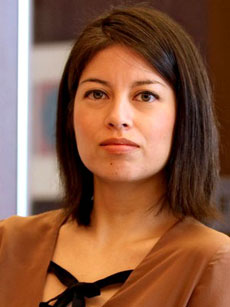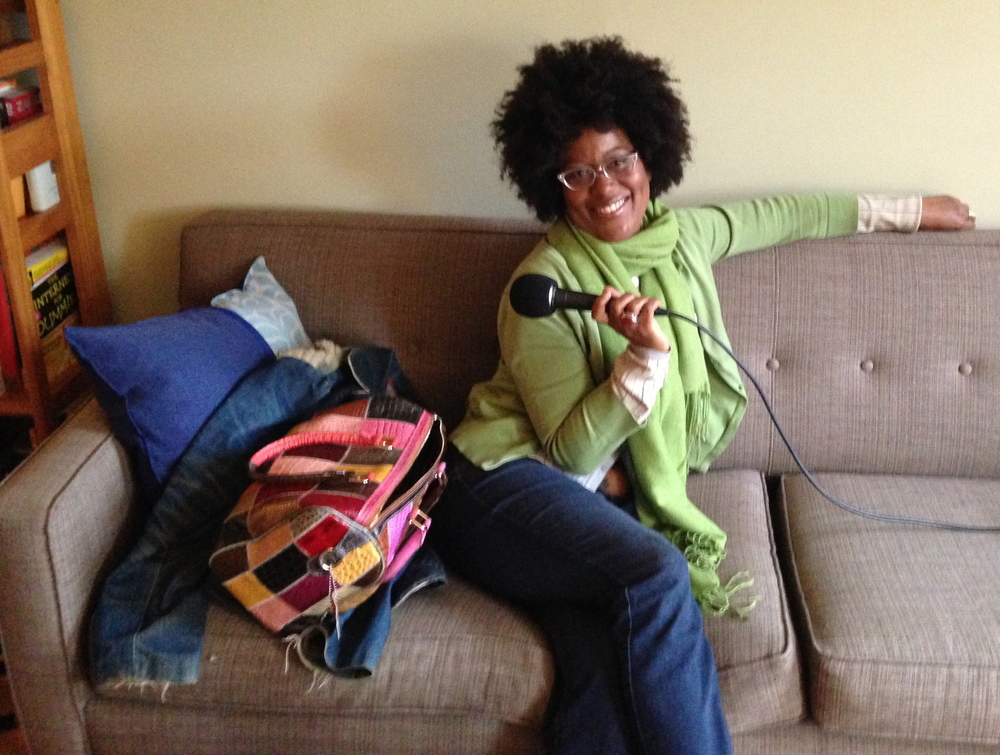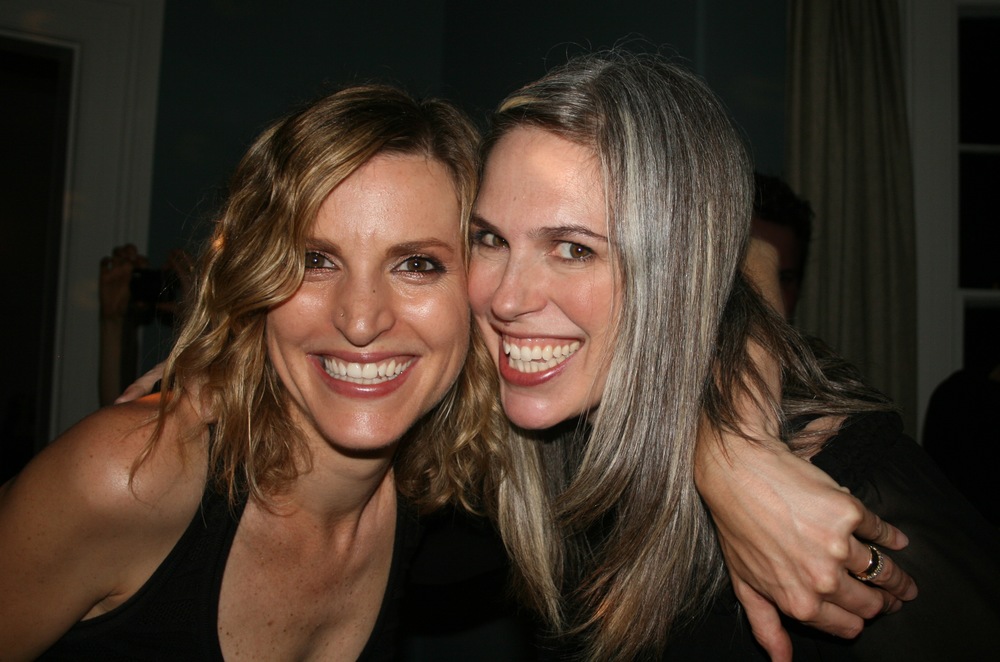January 27, 2014
"The women I work with are what I call 'perfectionistic over-functioners' - they need to get an 'A' in everything, they do more than is necessary, more than is appropriate and more than is healthy."
- Kathy Caprino
"When your success is based on getting the goal you’re never happy. So you’re happy when you get the goal, for a moment, but then the bar gets higher. Then it’s like, OK, what’s next?" - Emily Bennington
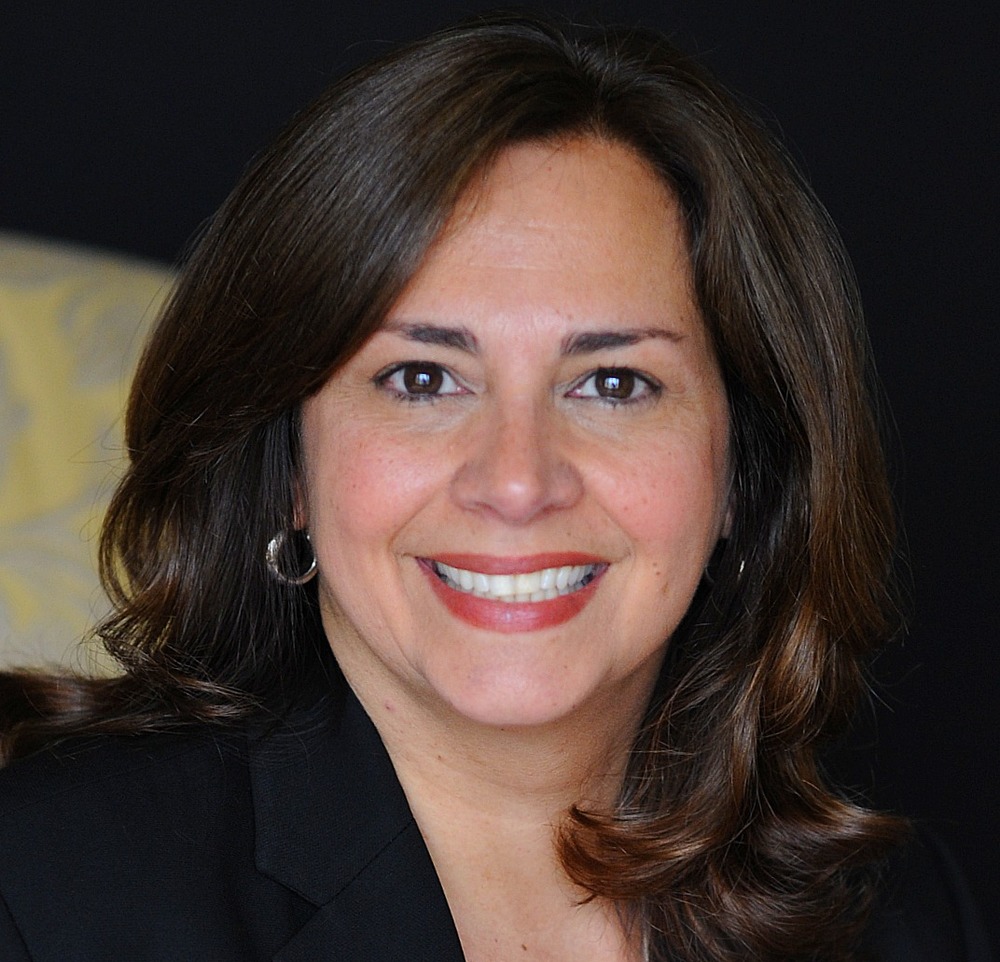 Kathy CaprinoAt the start of a new year people's thoughts often turn to what they can make of the clean slate that lies ahead. We're asked what our new year's resolutions are. Some of us (not me) actually make them. We see countelss headlines urging us to work on a newer, better version of ourselves - to make this the year we become truly successful at something, whether it's landing a better job or losing weight.
Kathy CaprinoAt the start of a new year people's thoughts often turn to what they can make of the clean slate that lies ahead. We're asked what our new year's resolutions are. Some of us (not me) actually make them. We see countelss headlines urging us to work on a newer, better version of ourselves - to make this the year we become truly successful at something, whether it's landing a better job or losing weight.
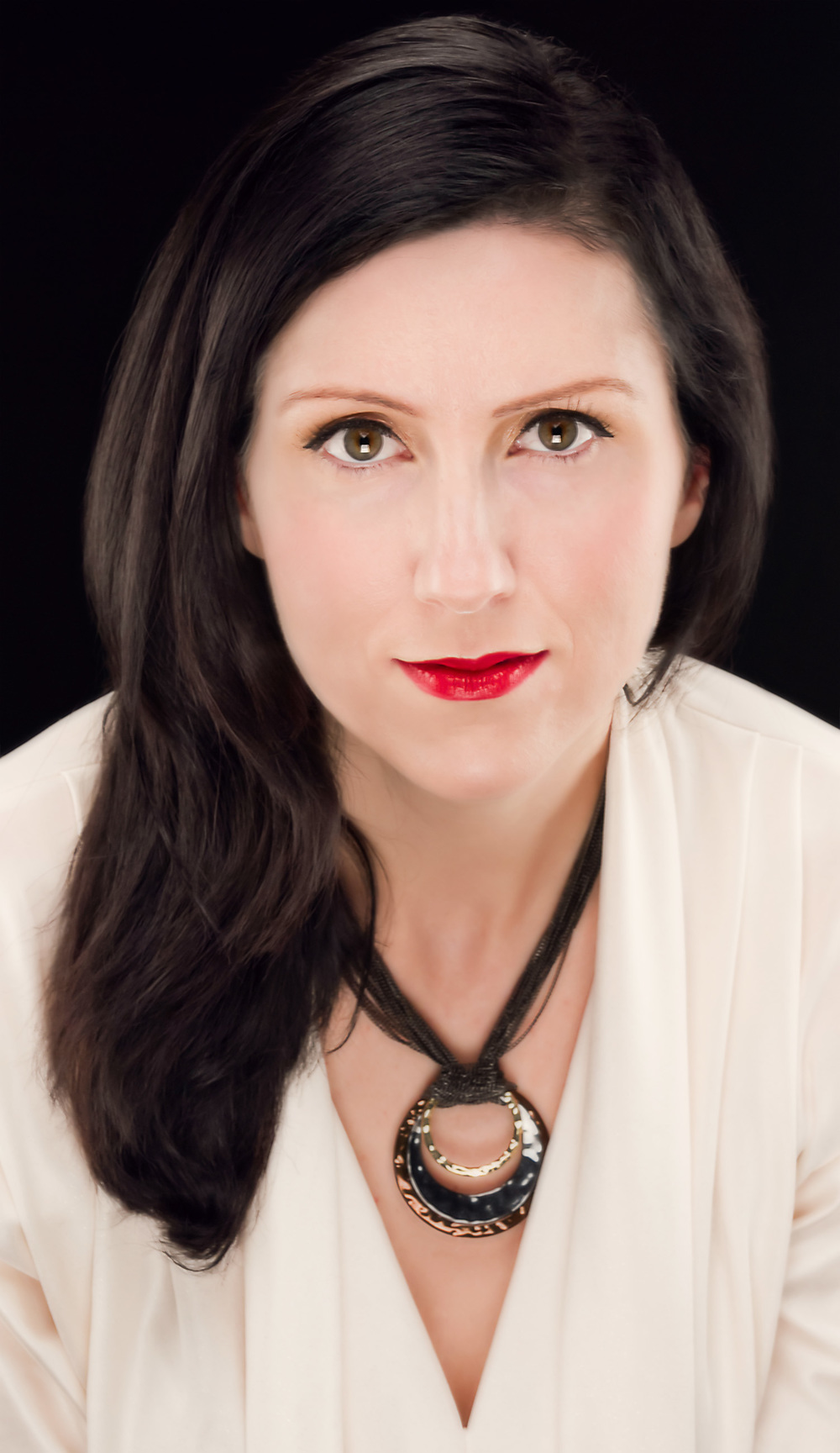 Emily Bennington
Emily Bennington
In this show we take a closer look at what success means. I spoke to career and leadership coach Kathy Caprino and mindful leadership coach Emily Bennington. Both women are also authors, and both have corporate careers behind them. Kathy and I discuss why some of us seem to expect success to come almost instantly when we launch a new project or entrepreneurial venture - and what the reality of such a launch entails.
Emily talks about her entry into the work world as a wildly ambitious twenty-something set on corporate domination. She wanted the title, the promotion, the money. What she hadn't bargained on was just how stressful she would find her ascent. After years of striving she had a change of heart, and changed her definition of success. You can comment on and share the piece below, or weigh in on the show's Facebook page. Full transcript below.
20 minutes.
Show notes: Kathy Caprino is the author of Breakdown, Breakthrough.
Emily Bennington's latest book is Who Says It's a Man's World.
Here's a link to the video Kathy Caprino made to answer that reader's question on whether she should give up her new endeavor because it was proving so hard.
And for another take on success (the more traditional kind), here's a piece by 'tiger mother' Amy Chua and her husband Jed Rosenfeld from the New York Times.
SHOW TRANSCRIPT:
Welcome to The Broad Experience, the show about women, the workplace, and success. I’m Ashley Milne-Tyte.
This time on the show… what does success actually mean…and what does it take to get there?
“There are an awful lot of messages that if you’re doing it right you’re just going to attract wealth and fame and recognition and ease, and it’s just not accurate.”
“My success at the time was defined by what I had, it was defined by my position on the org chart, it was defined by the amount of money in my bank account.”
Coming up on The Broad Experience.
We’ve just begun a new year and that means we’ve all seen plenty of articles with titles like ‘7 ways to a new you’ or ’10 ways to be more successful in 2014’. It seemed a good time to consider what exactly success means for different people, and why some of us expect it to come so quickly.
Recently I came across a video career coach Kathy Caprino had posted on her website. Some of you will remember Kathy from episode 14 of the show. She talked about the difficulty so many women having fitting into the typical corporation. She now counsels a lot of those women.
In this video she was responding to an email from a reader. The woman had a corporate career and wasn’t enjoying it. She’d started a side project she was passionate about – a travel blog. But despite several months’ worth of effort the blog wasn’t getting much traffic. She wanted to know whether to give up. I wanted to know why so many of us assume endeavors like this will be successful right away.
“You know I was thinking about why do we assume it’s going to be easy, and I think there are three key reasons for that: social media and internet marketing gurus sell to us by saying it’s all going to be a split second, blink of an eye, drop of a hat, and it’s just not true… the second is, our level of experience: what I find is people who have launched things in the world, in the corporate world, entrepreneurially, otherwise, creatively, they know how much effort it takes, how hard it is, so your level of experience in doing this will gauge, it informs you. Third is, a lot of people try to do this stuff by themselves, alone, in a vacuum, you should reach out and get some form of expertise, so you do need not necessarily to pay a lot of money, but you do need expert help when you’re launching something like that.”
I prodded her on the gender factor. Could a man have written the exact same email? Are women more easily discouraged by an apparent lack of progress? Kathy says there’s something in that.
“The women I work with anyway are what I call, often, perfectionistic over-functioners. They need to get an A in everything, and they do more than is necessary, more than is appropriate and more than is healthy. I see it over and over and over again, and there is a reluctance to reach out and get help, and there is truly a reluctance to invest in yourself. I know how hard that is, having my own business, you have to pay all the bills, sock away something in savings so you can invest later, and in order to grow you have to pay for things, a new website, whatever. I do feel from my experience that women struggle with that more than men.”
Some of you will have heard me talk about this in the show I did on women’s relationship with money. Many of us are happy to splurge on some indulgence like a new shirt, but balk at paying for services that could have a much longer-lasting effect on our lives. But back to what it takes to build a new endeavor from scratch.
“You know there’s another thing we didn’t talk about, that build it and they will come belief – and some people, it’s a new-agey believe, a spiritual belief, and I am a spiritual individual, I believe in spiritual principles, but this build it and they will come, and do what you love and the money will follow, I don’t believe in either of those, necessarily. But there are an awful lot of messages that if you’re doing it right you’re just going to attract wealth and fame and recognition and ease, and it’s just not accurate.”
So Kathy offered her correspondent some practical advice about what it means to keep going with an entrepreneurial project.
“Realize that everything we create of meaning and value requires work, it doesn’t fall in your lap. But the question is this, what does the work feel like? So when I look at what I’m putting out in the world, writing for Forbes or my new Amazing Career Project…it’s an incredible amount of work, but it’s enlivening work - not every minute, let’s not kid ourselves, but in general I’m excited, enthralled, I can’t wait to interview someone else. If it feels terrible, debilitating, demoralizing, if you procrastinate and want to do anything but that work, then something’s wrong. Then you need to look at what is not happening that should be. The second thing I mentioned to her was we often overly attach to how something should look and the outcome. I see this with people who write books…’I should be able to sell 30,000 books overnight.’ We overly attach without realistic expectations, and that makes us suffer. And the third thing that’s important to look at is, with this blog this individual is doing, is that really the right form for the essence that you’re trying to create and feel and experience? So for her for instance, she loved travel, but I didn’t know is blogging about travel the right thing? There are a million ways we can we can honor our passion for travel, and blogging, which requires content creation, editing, editorial calendars, it’s a vigilant process, maybe that isn’t the right form for the essence she’s looking for.”
She says it’s not that surprising this woman should search for an outlet when she’s so fed up at work. And at least she’s doing something on a trial basis – she hasn’t left her job. Yet.
“What I see are many, many midlife women coming to a true crisis. They wake up and say I don’t want to continue doing this one second more. They’ve been hurt or downtrodden or thwarted or suppressed, they’re not happy in their careers so they fantasize about a new direction. And I call it the pendulum swing because it’s like ‘joop’, going to the opposite side of the world in terms of what they want to do. And that was me, I had an 18-year corporate career and there was a lot of pain in it.”
After she was laid off just after 9/11 Kathy knew she wanted nothing more to do with corporate life. So she trained to become a therapist. But she discovered after a while that while it might be miles away from company life, it still wasn’t the right role for her. It took more years and more training to develop her role as a leadership coach.
“I think we have to be very careful if we’re in careers that are causing us pain and suffering. The answer is not to leap into another direction without doing what I call the five steps of career change, and one of those is explore it and try it on and know before you leap that it’s the right direction.”
Kathy Caprino. Kathy is the owner of Ellia Communications and the author of the book Breakdown, Breakthrough. I’ll be posting links to her information under this episode at The Broad Experience.com
A quick note here before we go on. The Guardian recently featured The Broad Experience as one of its ’10 best lesser-known podcasts’. I was the only woman on the list. This was a huge thrill for me because as some of you know, building a show like this takes a lot of time and work, so to be recognized by a publication like the Guardian feels great. I also want to take the opportunity to say thank you to all those of you who’ve taken the time to write a positive review about the show on iTunes or who’ve given a donation – or both. It all adds up. Thank you.
Next I spoke to Emily Bennington. Emily teaches and writes about mindful leadership for professional women – and she came to that via a whirlwind of an early career. When she entered the workforce about 14 years ago she didn’t so much hit the ground running as racing. She thought she knew exactly what she wanted from life – to be successful in the sense of having the right title, the right clothes, earning a lot of money. And this was for good reason. Her mother hadn’t had a career.
“She was basically beholden to the decisions that the partners made in her life for her. And that didn’t always work out so well.”
She stuck in some abusive relationships because she couldn’t support herself otherwise. She did find happiness with Emily’s step-father but after almost 20 years he died of a heart attack and again, her mum was left alone with few financial underpinnings. All Emily knew was that she was not going to let the same thing happen to her.
“I started my career working for a marketing agency, and I was a ball of ambition. Actually it came across as ambition but what was driving it was fear. Again, watching how my mother was and knowing that wasn’t what I wanted for myself…I was just pushing, pushing, pushing, and it resulted in burnout very young. But one of the things that got me so interested in leadership and mindful leadership in particular was after pushing for a year, my first year in the workforce, I had first performance review with my boss. One of the things he said was, ‘Emily, I think your technical work is great, and I want to see you succeed in your career, but here’s the problem – I know you want a raise, I know you want a promotion, but I can’t promote you because no one on this team respects you.’
Ouch.
“One of the tings I learned walking out of that meeting was my success wasn’t just dependent on what I brought to the table, my success was dependent on the support and the encouragement of my team…it was the whole, a rising tide lifts all boats, right? After that meeting it became very clear to me if I was going to succeed, I was going to have to learn how to be a team builder.”
OK, but why didn’t anyone respect her?
“Well I was the classic, I like to refer to it as Devil Wears Prada archetype, it was the highly ambitious woman, who at the end of the day – and I don’t want to categorize it as just women because obviously men fall into this trap too. But my success at the time was defined by what I had, it was defined by my position on the org chart, it was defined by the amount of money in my bank account, and it was all of those external factors that really contributed to how I saw myself…and you know what? I thought that because that’s what we’re taught success is. When you got into the bookstore and look at the leadership section or career section that’s basically how success is defined. And so I fell into that. And what I learned after a few years was that that’s a trap, and that actually makes you pretty unhappy, and so I had to flip it upside down on its head.”
Emily and her husband have two little boys who are now 8 and 6. She says when she had them she was at the height of her corporate career. Striving, getting her first book published, being head of a young professional’s group, sitting on a board, always comparing herself to her colleagues. She was exhausted and crying a lot when she got home. She says stepping away from corporate life, thinking about who and what really mattered to her, changed her whole idea of what it is to be successful. She’s still ambitious, but says she controls that drive rather than the other way around.
“A magnificent career comes from being a magnificent woman first. And it’s a really flipped upside-down paradigm of success. And it goes against judging your success based on what it is that you have and what you have achieved. It bases success on the only thing in your life that you can control, and that’s yourself and how you choose to respond to the world around you. So when I talk about what it is to be successful now, success is showing up every day as the best of myself, as the best of who I am and who I want to be and letting the chips fall as they may as a result of that.”
This was starting to get a bit Oprah for me. I asked Emily to drill down and give me some examples of how this mindfulness plays out in her daily life. For one thing, I knew she had an interesting approach to goals. We’re often told goals are vital to move us forward in life and work. I find them useful motivators.
“I have a very love/hate relationship with goals. Because the most unhappy I’ve ever been in my career is when I was 100% goal-driven and viewing my success based on whether I achieved the goal. That is really a system designed to ensure we’re perpetually unsatisfied. Because when your success is based on the goal you’re never happy – so you’re happy when you get the goal for a moment, but then the bar gets higher. Then it’s like, OK, what’s next? So what I’ve discovered is you can’t rest in achieving the goal, there’s always another step to be made afterwards, and if you don’t get the goal you feel like a loser, so that process, getting the goal or not getting the goal, is just this emotional rollercoaster.”
One that was making her miserable. Ultimately, she decided to focus on the way she carried herself each day.
“So I sat down and thought of different virtues I wanted to personify and embody: for me these were things like discipline, these were positivity, mindfulness, so what I focus on instead of, ‘Did I get everything done on my task list today?’, what I focus on at the end of the day is did I show up as who I wanted to be? And what I’ve discovered is that as I continue to show up as the best of who I am, I get the things done that need to be done and I do them well.”
So the goals tend to happen anyway.
“And I tell you what, I’ve been happier than I’ve ever been as a result of just saying, you know what, it’s not that I don’t have goals, like you, they’re incredibly motivating, but you have to detach from them if you want to maintain some sort of peace in your life.”
So she keeps them there but she’s also able to let them go if she doesn’t hit them. As for what she calls ‘virtues’ like positivity, she says sure, it’s easy to say you want to remain positive in a dysfunctional work environment. But you have to pair that positivity with a true intention to carry it out at all times – even testing times…
“If you set an intention, so you’re being proactive about who you want to be, then you tend to be that person versus just allowing the emotion or whatever it is you’re feeling in the moment to guide your behavior so you’re kind of blowing in the wind like a flag. But if you have an intention it’s almost like you set your sail, this is who you’re going to be, and you tend to stick with that. So if you do that over and over and over again, what starts to happen is you get the little things right each day. So as you get the little things right time and time and time again what happens is, you look back and go, oh, I’ve got this great reputation at work, and I’m happier too.”
OK, it was time for me to put on my cynical journalist’s hat.
AM-T: Because it sounds really encouraging and I love this different way of thinking about success and the way we do things, it certainly suits me. But the fact is we live in a society that largely still places the other value on success – you know, the title, the org chart version, and when you’re a woman in a corporation, I don’t know, what do you think, have you heard from women in corporations and they’re saying your advice and your methods are making a difference to them? I just know how dysfunctional companies can be and I wonder if women can really make this change from the inside, and how long it’s going to take.”
“Hmm, yeah, and that’s where business culture itself needs to change. And that’s one of the reasons why I love speaking to women because women really seem to get this idea of conscious leadership. By conscious leadership I mean not just looking out for yourself but looking out for the team around you, and using that to propel your way up. I mean I love the quote that great leaders don’t have to claw their way to the top, they’re carried there. And that’s what I mean by conscious leadership. And that’s what I think leadership needs to be and that’s where business I think needs to reform in some ways to support leaders who rise in that way.”
She says Whole Foods CEO John Mackey and Arianna Huffington of the Huffington Post are two top dogs she admires who are exercising conscious leadership. If you have a job at either of those places, I’d love to hear whether you think it’s working.
Emily still reminds herself of different ways to think about success.
“Usually when you first meet somebody, at a cocktail party or whatever, the first question you ask aside from what’s your name, is what do you do? That puts us in a position where we evaluate our success based on again, the things we have and the things we don’t have, the job we have and the job we don’t have, but I had friend of mine ask me how do you serve…and I just thought that was such a fantastic question. It really put things into perspective for me to think about OK, well I may not be as accomplished as I want to be, but I can always serve, so whether you’re serving clients, or students, whoever you’re serving, if you are serving well, if you’re doing that well, you will have satisfied students, satisfied clients, whatever, and that will propel your career, it will advance what you do. And so I just keep that in mind right now all the time. If I’m serving well I will get where I want to go. And so it just once again shifts the perspective to something I can control. I can’t always control how advanced that I am in my career…”
Office politics…
“Exactly…but I can always control how I’m serving. And I think if you bring that mindset to work with you every day, you’ll really find what I call the snow-globe mind, the monkey mind or whatever, begins to settle, because again, you’re re-claiming your power by focusing on what you can control.”
Emily Bennington. You can find out more about Emily at her website and I’m putting a link to that and her book, Who Says It’s a Man’s World? under this episode at The Broad Experience dot com.
That’s the Broad Experience for this time. Next time on the show we look at the different ways men and women use humor in the office.
“Men were using it more often and were using it in a way that produced a laugh whereas when women used it less often, they often didn’t get a laugh.”
Hmmm.
The Broad Experience is supported by the Mule Radio Syndicate…which hosts other great podcasts including the investigative show Muckrock, and Impolite Company.
I’m Ashley Milne-Tyte. Thanks for listening.
 Julia Pimsleur
Julia Pimsleur Denise Barreto
Denise Barreto

